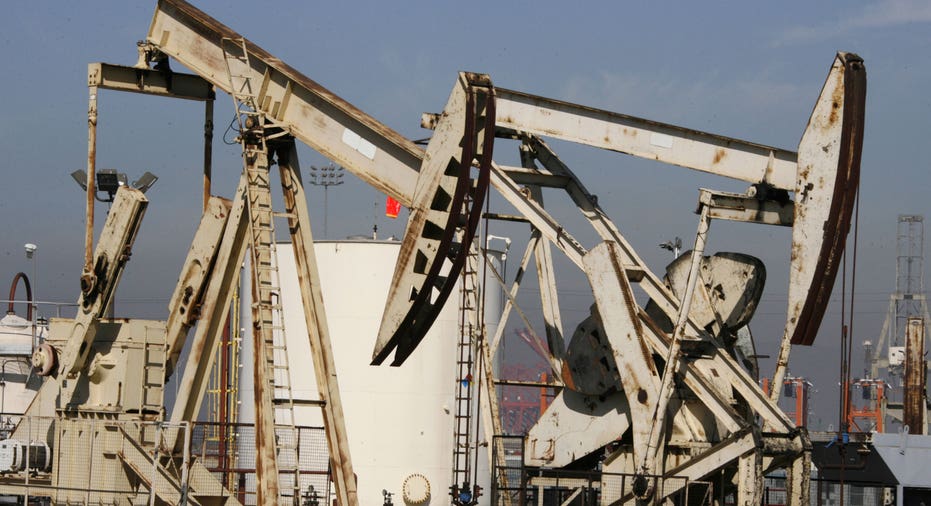Oil prices rise on Middle East tensions, healthy demand

(Reuters)
Oil prices edged up on Wednesday, lifted by tensions in the Middle East and healthy demand, although rising U.S. output continued to weigh on markets.
U.S. West Texas Intermediate (WTI) crude futures were at $63.69 a barrel at 0744 GMT, up 15 cents, or 0.2 percent, from their previous close.
Brent crude futures were at $67.56 per barrel, up 14 cents, or 0.2 percent.
Saudi Arabia's Crown Prince Mohammed bin Salman on Tuesday arrived in Washington for a state visit, raising speculation the United States could reimpose sanctions on Iran, following renewed criticism of the 2015 nuclear deal.
"The presence of the Saudi Crown Prince...in Washington and his clear agenda to ramp up pressure on Iran, has for me, been the key driver...of oil, which rose strongly," said Greg McKenna, chief market strategist at futures brokerage AxiTrader.
Analysts also pointed to the nomination of Mike Pompeo as new U.S. Secretary of State as a risk to oil markets, given he fiercely opposed the 2015 pact as a member of Congress.
"The nomination of Mike Pompeo for U.S. Secretary of State...raises the likelihood of oil trade disruptions," U.S. bank Citi said in a note.
Should the United States reimpose sanctions against Iran, energy consultancy FGE said that would likely result in a 250,000 to 500,000 barrels per day (bpd) drop in its exports by year-end.
Analysts also pointed to healthy economic growth and a weak dollar as oil price drivers.
In a sign of healthy demand, U.S. crude stocks fell by 2.7 million barrels in the week ended March 16 to 425.3 million, the American Petroleum Institute said on Tuesday.
Official U.S. production and inventory data will be released by the Energy Information Administration (EIA) later on Wednesday.
"The global economy is humming, and robust demand solidly underpins commodity prices," said Norbert Ruecker, head of macro and commodity Research at Swiss bank Julius Baer.
Despite this, he said seasonally low demand at the end of the northern hemisphere winter season meant he had "a rather cautious near-term outlook on commodities."
Looming over oil markets has been surging U.S. crude production, which has risen by more than a fifth since mid-2016, to 10.38 million bpd, overtaking top exporter Saudi Arabia and putting the United States within reach of Russia's 11 million bpd.
"U.S. shale will continue to weigh on prices," Singapore-based Phillip Futures said in a note.
Still, some U.S. producers are holding back expansion in order to prevent a price crash.
"Larger players are holding back capital expenditures in an attempt to avoid past mistakes," said consultancy FGE.
(Reporting by Henning Gloystein; editing by Richard Pullin)



















